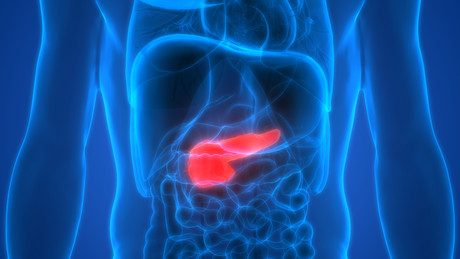'Educated killer cells' show promise in pancreatic cancer

Researchers from the UK, US and Australia have demonstrated the success of a new, cell-based immunotherapy for pancreatic cancer. Published in the journal Gut, the team’s treatment led to mice being completely free of cancer — including cancer cells that had already spread to the liver and lungs.
Pancreatic cancer is often diagnosed at a late and advanced stage, when the tumour has already spread to other organs. Current treatments only marginally extend the lifespan of pancreatic cancer patients, with five-year survival at just 7.7%.
Seeking to combat this, the research team obtained pancreatic cancer cells from patients with late-stage disease and transplanted them into mice. They then took the patients’ immune cells and modified them to specifically identify and eliminate the cancer cells — which is why they’re also called educated killer cells, or CAR-T cells.
“After injecting these CAR-T cells into mice, they were capable of finding any cancer cells in the body, stick to them via surface markers and subsequently destroy the cancer cells,” said Professor Chris Heeschen, lead author on the study from UNSW Medicine. “The treatment was so effective that the animals remained tumour-free.”
The researchers also introduced a new technology that allows them to completely control the activity of CAR-T cells. Using so-called ‘switchable CAR-T cells’, the team used this new concept for the first time in pancreatic cancer, and divided cancer target recognition and subsequent killing of the cancer cells into two separate processes.
“Switchable CAR-T cells now allow us to stop the treatment, if required, thus making our therapy extremely safe,” said joint corresponding author Dr Alexandra Aicher, who recently moved to UNSW Sydney. “Switchable CAR-T cells will also ensure we can rapidly adapt our treatment target to another cancer surface marker, if resistance may occur.”
The team now hopes to bring this promising therapy to the clinic, and is seeking funding to progress. Professor Heeschen noted, “The next step will be to combine CAR-T cells with treatments that make it easier for the CAR-T cells to reach the cancer cells.
“Pancreatic cancer is known for its fortress-like structure that needs to be overcome in order for the CAR-T cells to reach their target cells and remain at maximum activity. We hope to have this new treatment strategy ready for the clinic within the next three years, pending funding.”
argenx and Monash University partner against autoimmune diseases
To advance a pioneering molecule for autoimmune diseases, global immunology company argenx has...
Archer completes potassium sensing alpha prototype
Quantum technology company Archer Materials Limited has developed an early Biochip prototype...
Farm animals and aquaculture cryopreservation partnership announced
Vitrafy Life Sciences Limited has announced that it has entered a 12-month exclusive agreement...



